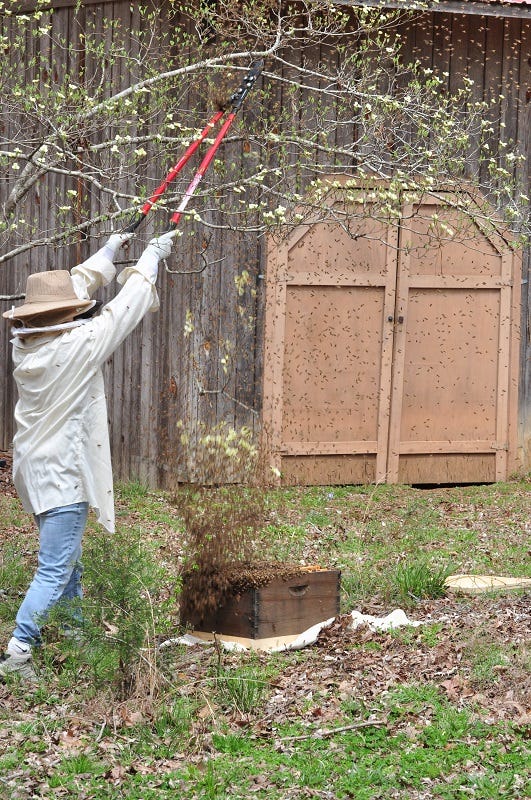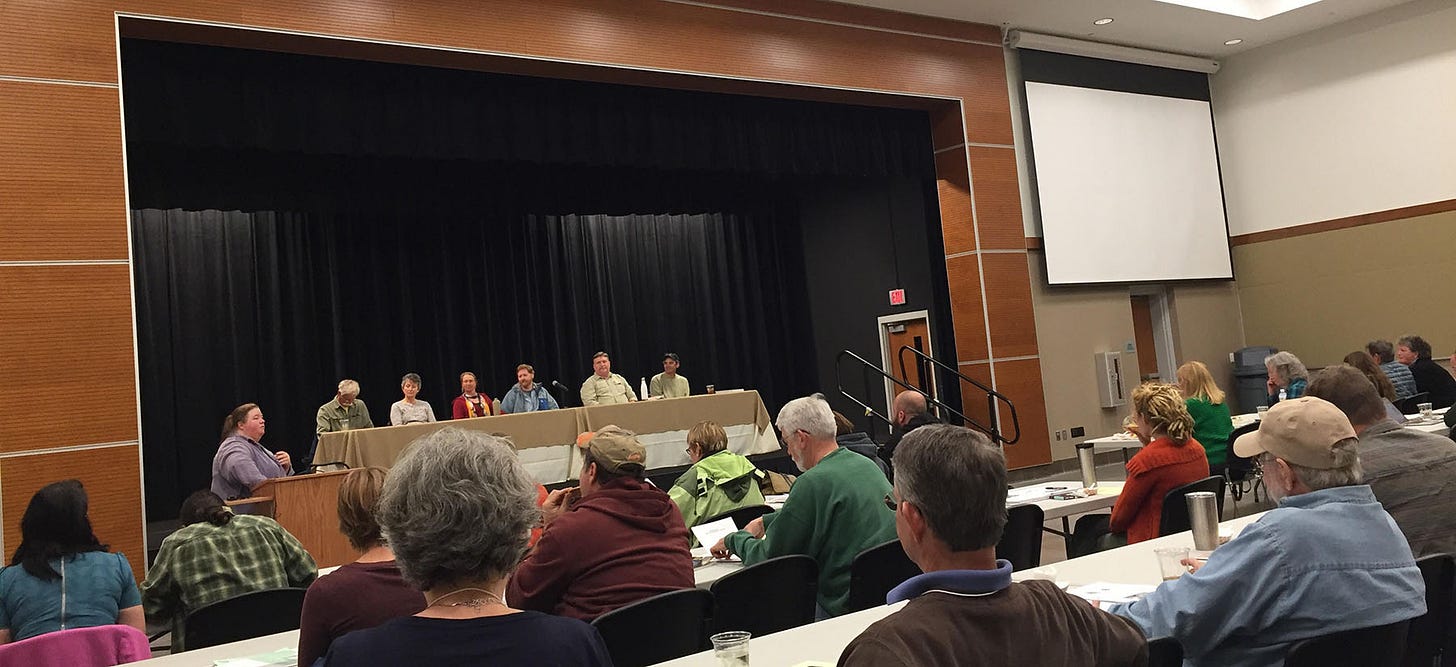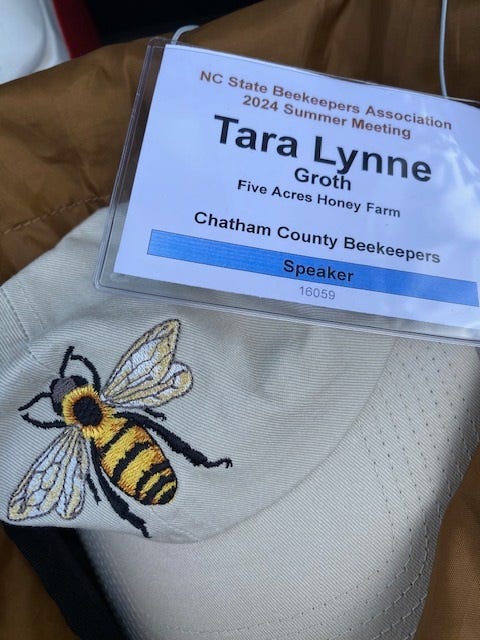Fall and winter learning to start spring beekeeping
I created a quick list of resources for new and soon-to-be beekeepers.
Thanks to a few aspiring beekeepers for asking me what to read, watch, or listen to over the fall and winter to get prepared for one’s first hives next spring. Today’s post is going to be a living resource that I plan to routinely update and point people to when they’re getting started.
Find a beekeeping mentor
Creating this list of resources also coincides with the launch of my beekeeping mentor program. Several folks have reached out to me for personalized mentorship. Most beekeeping clubs have their own free-to-no-cost mentor options. However, sometimes people are in rural areas where learning options are limited or others want dedicated support. For anyone interested in 1:1 personal beekeeping mentorship, take a peek at my new beekeeping mentor program. Spots are limited. 6-month and 1-year options include a paid annual subscription to this blog. I’m also planning to offer a few nucs and hives for sale next spring—mentees will get the first option (and a discount) to purchase those.
Breaking down beekeeping into seasons
Whether you work with a mentor or independently, I have a suggestion for tackling the never-ending ocean of what there is to learn about honey bees. Before setting aside time to learn from the following resources, my one recommendation is to focus on seasonal needs. You will never learn everything there is to know about beekeeping. That’s what I love about it. However, always having something new to learn can be intimidating. Breaking down what you need to know by season is a strategy that can help you focus on what’s most important in the moment. For soon-to-be-beekeepers, fall and winter time is ideal for diving into everything spring. You’ll be fully equipped for spring, then in the spring you can start to focus on summer needs. One of our North Carolina State Apiary Inspectors, Nancy Ruppert, has a great beekeeping calendar by month.

Beekeeping clubs in your area
Local knowledge about hive activity is valuable wherever you live. Attend club meetings or find someone nearby to chat with about what they’re seeing in their hives.
The beekeeping chapter where I live in Chatham County hosts an in-person beekeeping school every other year, and a virtual school in the alternate years. The virtual one is open to anyone anywhere. The next in-person school is just a few months away—January 2025.
Books on beekeeping
If you’re ready to curl up this fall and winter with some books, the ones on my shelf include (in no particular order):
QUEENSPOTTING by Hilary Kearney
FIRST LESSONS IN BEEKEPING by Camille P. Dadant
COMPLETE GUIDE TO BEEKEEPING by Roger Morse
LANGSTROTH’S HIVE AND THE HONEY BEE by L. L. Langstroth
BIODYNAMIC BEEKEEPING by Matthias Thun
HISTORY OF HONEY IN GEORGIA AND THE CAROLINAS by April Aldrich
A BOOK OF BEES by Sue Hubbell
LISTENING TO THE BEES by Mark L. Winston and Renee Sarojini Saklikar
RAISING RESILIENT BEES by Eric and Joy McEwen
Podcasts on beekeeping
Beekeeping Today is the only bee-related podcast I listen to fairly routinely. I’ve heard of Two Bees in a Podcast, but haven’t tuned in yet. I imagine it’s full of rich material since it’s produced by the Honey Bee Research and Extension Lab at the University of Florida.
Some of my fav Beekeeping Today episodes include:
Combplex Update – About an in-hive laser that zaps varroa mites.
Dr. Sam Ramsey’s research - He explains tropilaelaps mite research.
YouTube channels on beekeeping
Bob Binnie - Owner of Blue Ridge Honey, an operation in North Georgia running 1,000+ colonies.
BeeFit Beekeeping - A Michigan beekeeper breaks down seasonal prep, mite management, and more.
Honey Bee Health Coalition - Lots of educational videos.
Instagram beekeepers
Noogahoneypot – Candid honey bee observations and bee removals in East Tennessee/North Georgia.
Bensbeesau – Perspectives from an Australian beekeeper on nature, bees, and occasional honey history.
Girlnextdoorhoney - San Diego beekeeper, author, and photographer who educates and catches swarms. (Also the author of one of the books included in this post.)
Beekeeping conferences
Meeting beekeepers from other areas and hearing from experts might influence how you want to start managing your hives. When I attend instead of speak at conferences, I like to be a sponge and gather information about topics I don’t normally have exposure to. Unless winter weather foils my plans, I’ll attend the largest beekeeping conference in North America. Held in Louisville, Kentucky in the days after the New Year, the North American Beekeeping Expo brings together honey bee experts, researchers, and vendors. Most states have their own conferences too. On a global scale, I hope to one day attend Apimondia, which is held every other year and “exists to promote scientific, technical, ecological, social, and economic apicultural development.” The next event Apimondia 2025 is in September in Copenhagen.
There’s no shortage of resources for aspiring and new beekeepers. Take your time and the bees will take it up too.





